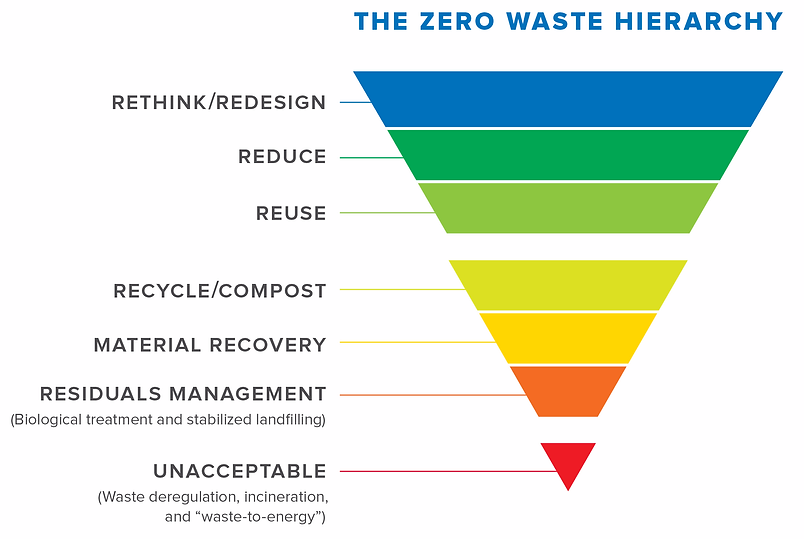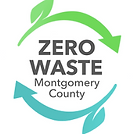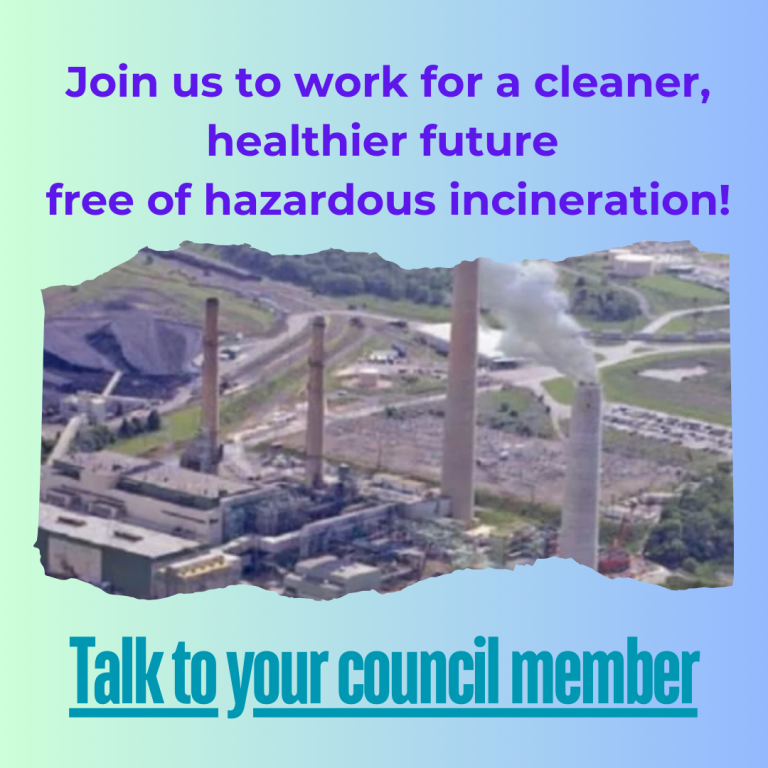What is Zero Waste?
“Zero Waste is the Conservation of all resources by means of responsible production, consumption, reuse, and recovery of all products, packaging, and materials without burning them and with no discharges to land, water, or air that threaten the environment or human health.”
Zero Waste International Alliance, Version 8.0 — Last updated May 19, 2022.
Learn more at zerowasteusa.org
Since the mid-1990s, as landfill space was limited, Montgomery County has relied on waste incineration to dispose of its trash from residential, multi-family, government and some businesses. Unfortunately, this has led to an “out-of-sight, out-of-mind” approach to materials management.
The trash incinerator is now the county’s largest industrial air polluter. It is the county’s largest single source of greenhouse gases, ammonia, arsenic, beryllium, cadmium, chromium (VI), hydrochloric acid, mercury, nitrogen oxides, particulate matter (PM10), fine particulate matter (PM2.5), and sulfur dioxide and is the county’s second largest source of lead emissions. While we have a strong recycling program we can recycle much more as well as adopt waste prevention, reuse, composting and other strategies to make us a national zero waste leader that other cities and counties can emulate. We plan to highlight how these programs will help us reduce our waste by as much as 80 percent.


